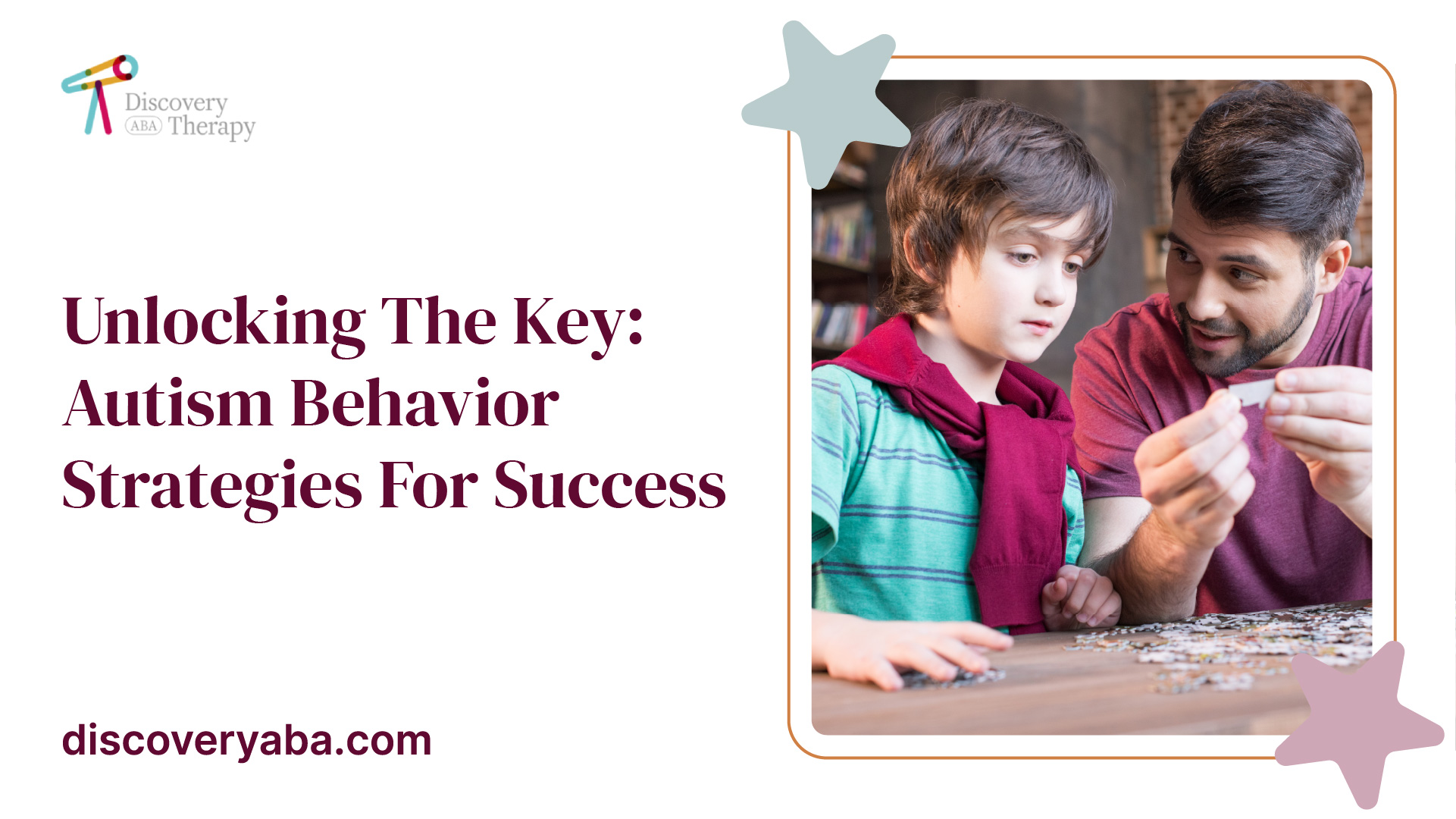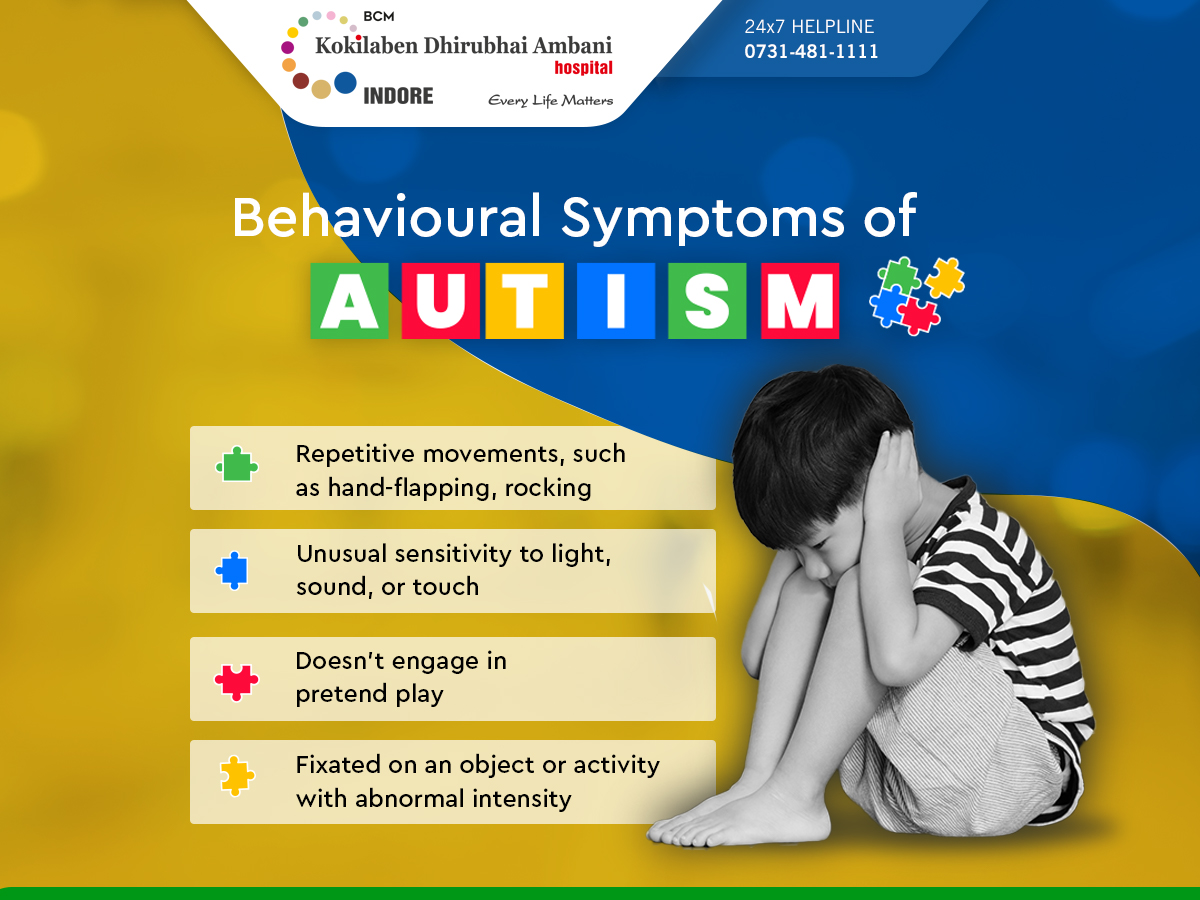How Autism Spectrum Therapies approach nonverbal communication barriers
How Autism Spectrum Therapies approach nonverbal communication barriers
Blog Article
Understanding the Impact of Behavioral Autism on Daily Life and Social Communications
You could not realize exactly how deeply behavioral autism influences day-to-day live and social interactions. People on the range typically browse a world loaded with interaction obstacles and sensory overload. These obstacles can cause aggravation and isolation, impacting their relationships and overall health. Comprehending these subtleties is crucial for promoting supportive settings. What strategies can we execute to develop even more inclusive areas and purposeful links? The solutions may stun you.
Defining Behavioral Autism and Its Qualities
Behavior autism, frequently described as autism range disorder (ASD), incorporates a series of conditions defined by difficulties in social interaction, interaction, and repetitive actions. You might observe that individuals with ASD commonly battle to analyze social cues, which can bring about misunderstandings in conversations. They might discover it difficult to develop eye get in touch with or take part in tiny talk, making social circumstances feel frustrating.
Communication troubles can show up in various ways, from delayed speech advancement to a preference for utilizing less words. Repetitive habits, such as hand-flapping or shaking, can function as coping mechanisms to take care of anxiety or sensory overload. These characteristics can greatly influence every day life, making it important for you to understand and sustain those with ASD. By recognizing these qualities, you can cultivate an environment that advertises acceptance and encourages reliable interaction, assisting individuals with autism grow in their daily communications.
The Spectrum of Autism: Understanding Variability in Habits
Autism spectrum disorder (ASD) isn't a one-size-fits-all diagnosis; it differs widely among people. You may notice that some people with ASD exhibit light signs and symptoms, while others might deal with a lot more considerable challenges. This irregularity can show up in habits, rate of interests, and sensory level of sensitivities. You might come across individuals who are extremely spoken and engage quickly in conversations, while others may choose solitary tasks or interact non-verbally.
Moreover, the means individuals with ASD respond to sensory input can differ greatly; some may be bewildered by bright lights or loud sounds, whereas others thrive in stimulating settings. The range also consists of differences in social communications; some people might have a hard time to analyze social cues, while others browse social settings with loved one ease. Understanding this irregularity is crucial, as it assists you value each individual's unique experience and dressmaker assistance to their certain needs, fostering a much more comprehensive environment for every person.
Interaction Difficulties Encountered by Individuals With Autism
When you communicate with people on the autism range, you might observe their special communication obstacles. They usually face problems with both nonverbal and spoken hints, which can affect their social interactions. Understanding these obstacles is crucial for promoting far better links and assistance.

Verbal Communication Troubles
Numerous individuals on the autism spectrum experience spoken interaction difficulties that can substantially influence their everyday interactions. You might locate it testing to express your ideas, feelings, or needs plainly. This can cause aggravation for both you and those around you, as misunderstandings take place. You might deal with initiating conversations, keeping a topic, or understanding nuances in speech. Often, you might like utilizing basic language or repetitive expressions, which can restrict your ability to involve in much deeper discussions. Your volume, tone, or pace could not line up with social assumptions, creating others to misinterpret your intentions. Acknowledging these difficulties can help you and your support network create methods to enhance communication and promote far better connections with others in your day-to-day live.
Nonverbal Communication Barriers
Verbal interaction isn't the only challenge individuals on the autism spectrum face; nonverbal communication barriers can be just as significant. You may discover it hard to translate body movement, face expressions, and eye call, which are important for effective interaction. These obstacles can result in misunderstandings or misinterpretations of social cues, making interactions really feel overwhelming or complicated. You might battle to reveal your own emotions through nonverbal methods, leaving others not sure of your sensations or objectives. This separate can produce feelings of isolation and stress. Acknowledging these barriers is vital for fostering understanding and empathy in your communications. By attending to nonverbal communication, you can locate methods to improve your social experiences and boost your general quality of life.
Social Communication Effects
Social interactions can typically feel frustrating as a result of the special interaction challenges dealt with by individuals with autism. You may battle with analyzing social cues, making it tough to comprehend mockery or body movement. This can lead to misunderstandings or awkward moments in conversations. In addition, launching and keeping discussions might really feel tough, causing anxiety in social scenarios. You might prefer organized environments, making spontaneous communications unpleasant. It's additionally common to experience difficulty in taking part in little talk, which can impede developing new relationships. Acknowledging these difficulties can help you discover techniques to boost interaction, such as exercising social skills in risk-free setups or utilizing aesthetic help important link - Autism Behavioral Therapy. Understanding your requirements allows you to navigate social communications with better confidence and convenience.
Social Interaction and Relationship Building in Autism
While structure relationships can be challenging for individuals with autism, understanding their unique viewpoints and communication styles can foster significant connections. You might see that several people on the spectrum choose direct interaction and may battle with social signs or little talk. By being straightforward in your interactions, you can aid create an atmosphere where they really feel comfy.
Engaging in shared rate of interests can also serve as a bridge to deeper connections. Whether it's a pastime, a favored program, or a shared enthusiasm, these typical threads can open doors to relationship.
Day-to-day Live Routine: Navigating Challenges and Approaches
Steering daily life routines can be specifically testing for people with autism, especially when unforeseen changes occur. You may discover convenience in having a structured timetable, as it assists you their explanation expect what's next. When disruptions take place, it's typical to really feel overloaded or distressed. To browse these challenges, take into consideration implementing visual routines or checklists. These tools can provide clearness and confidence.
Developing a routine that consists of sensory breaks can likewise be helpful. This helps produce an understanding atmosphere.
Last but not least, technique mindfulness strategies to handle anxiety and anxiety. Straightforward breathing exercises or grounding methods can make a significant distinction. By including these strategies, you can boost your daily routine and decrease disturbances, making life really feel a lot more convenient.
Staminas and Abilities of People on the Autism Spectrum
Comprehending daily life regimens is just one facet of the autism experience. Many individuals on the autism range possess impressive strengths and capabilities that establish them apart.
Moreover, your memory skills commonly beam, specifically in locations of rate of interest. Autism Behavioral Therapy. This propensity for maintaining details can make you a beneficial source in areas like art, Read Full Article science, or technology. You might likewise show solid visual reasoning, enabling you to imagine intricate concepts and address troubles artistically
Additionally, your distinct viewpoint on the globe can promote empathy and understanding in others, enriching social interactions. Embracing these toughness not just enhances your self-confidence but also aids others value the varied abilities you bring to the table.
Creating Comprehensive Environments for Individuals With Autism
Developing comprehensive settings for people with autism begins with designing sensory-friendly areas that accommodate their special requirements. You can likewise cultivate chances for social communication, helping to construct links and friendships. By making these adjustments, you'll contribute to an extra inviting atmosphere for everybody.
Creating Sensory-Friendly Spaces
While creating sensory-friendly spaces, it's vital to reflect on the unique demands of individuals with autism. Incorporate silent zones where individuals can retreat and reenergize when bewildered. Consist of visual routines or clear signage to help people navigate the space with confidence.
Promoting Social Interaction Opportunities
Designing sensory-friendly areas not only addresses specific comfort however likewise sets the stage for significant social interactions amongst people with autism. Motivate peer mentoring, matching individuals with autism with supportive peers who can lead them with social situations. By executing these strategies, you can improve social chances, helping people with autism build relationships and reinforce their social skills in a risk-free, welcoming atmosphere.

Regularly Asked Inquiries
Just How Can Pals Support Someone With Behavioral Autism?
You can support a buddy with behavior autism by being client, paying attention actively, and appreciating their boundaries. Engage in tasks they delight in, connect honestly, and develop a comfy environment where they really feel valued and comprehended.
What Resources Are Readily Available for Parents of Kid With Autism?
You can check out various sources for moms and dads of children with autism, consisting of support teams, academic sites, and local social work. Connecting with various other moms and dads can also provide beneficial insights and shared experiences to help browse obstacles.
Can Behavioral Autism Adjustment Gradually?

Yes, behavioral autism can transform gradually. You could discover shifts in interaction, social abilities, and actions as your youngster grows. Early treatment and support often play crucial duties in these developmental adjustments.
How Do Sensory Sensitivities Affect Daily Life?
Sensory sensitivities can make everyday experiences frustrating. You may battle with loud sounds or bright lights, causing anxiety or evasion. Finding atmospheres that fit your requirements can substantially enhance your convenience and total every day life.
What Are Common Misconceptions Regarding Behavioral Autism?
You could believe behavioral autism only affects communication skills, however it's even more complex. Many presume individuals lack compassion or intelligence, which isn't real. Understanding these misunderstandings aids foster acceptance and support for those on the range.
Behavioral autism, frequently referred to as autism range problem (ASD), includes a variety of conditions characterized by obstacles in social interaction, interaction, and repetitive actions.Social interactions can often feel overwhelming due to the distinct interaction challenges dealt with by people with autism.Designing sensory-friendly areas not just addresses private convenience however likewise sets the phase for significant social interactions amongst people with autism. Encourage peer mentoring, pairing people with autism with helpful peers that can guide them with social scenarios. By applying these methods, you can enhance social possibilities, assisting people with autism develop relationships and strengthen their social abilities in a safe, welcoming environment.
Report this page